Blue Iguana Conservation (BIC) is a project under the National Trust for the Cayman Islands, focusing on saving the charismatic Grand Cayman blue iguanas.
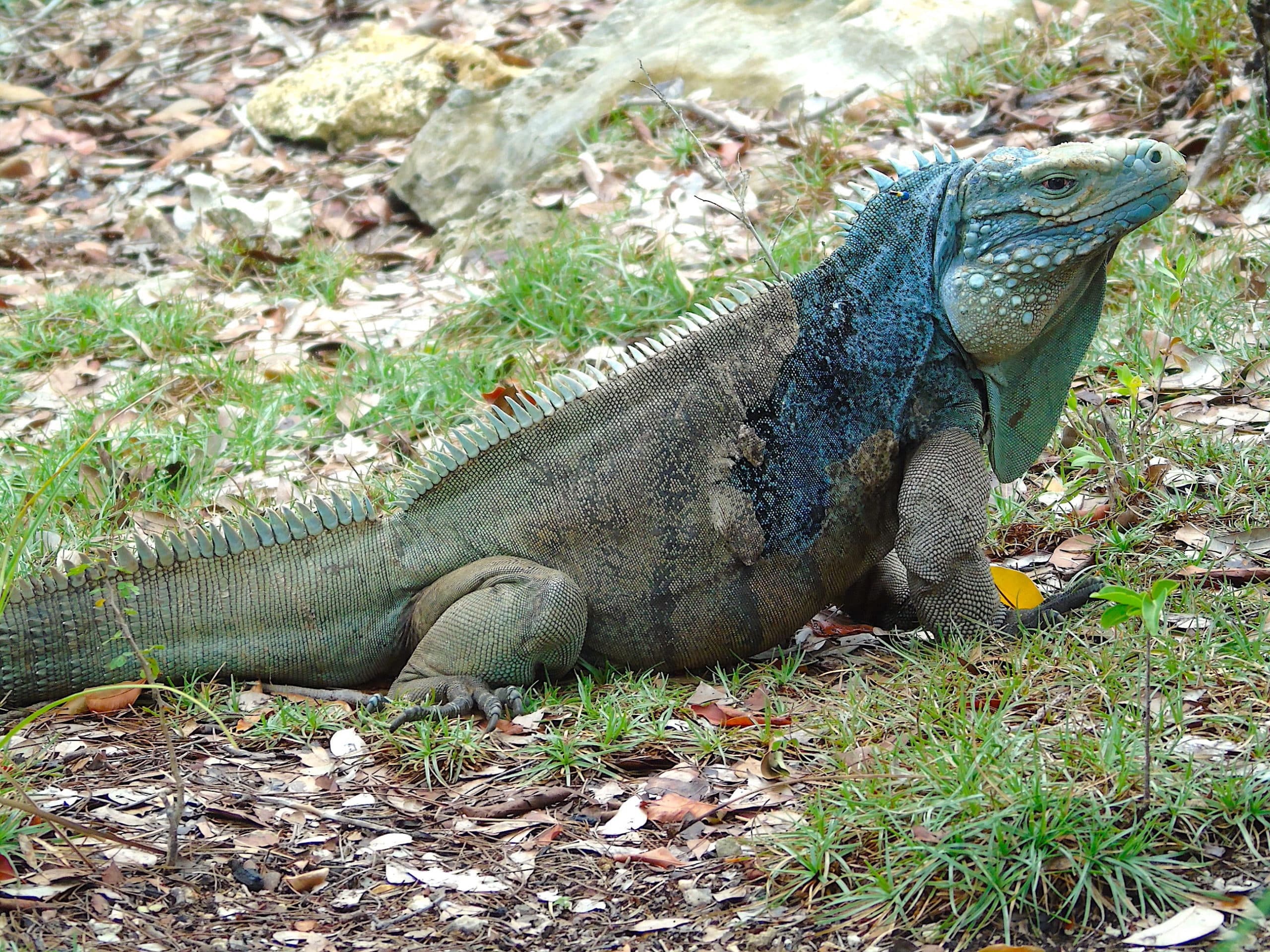
A male blue iguana in the Blue Iguana Conservation breeding facility. Picture credits: Blue Iguana Conservation
Optimistic Recovery
Grand Cayman is home to an extremely striking and charismatic lizard, the blue iguana (Cyclura lewisi). Found only on the eastern side of this 35 x 13 km island, its population has been drastically small since its discovery in 1938 by scientist Bernard Lewis. The first official survey in 2002, led by project founder Frederic J. Burton, found less than 25 individuals, leading to Critically Endangered status on the IUCN Red List of Threatened Species and functional extinction.
Following this, community outreach efforts were carried out to increase positive public engagement towards blue iguanas and develop national pride for the species. This was enabled through international support from Wildlife Conservation Society, San Diego Zoo, International Reptile Conservation Foundation and many more. In 2012, blue iguanas had clamoured up to Endangered status and the island celebrated what was believed to be the recovery of the species.
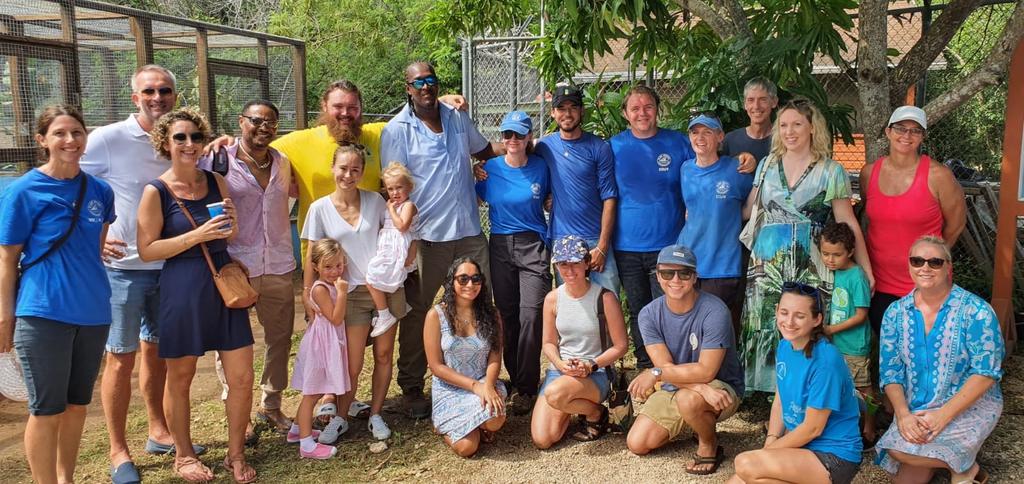
Blue Iguana Conservation staff and volunteers. Picture credits: Blue Iguana Conservation
Outreach Rekindling National Pride
However, despite breeding and releasing blue iguanas to ensure a recovered population of 1,000 individuals by 2018, historical field data has not shown evidence of wild survivability. This is particularly true in the younger age classes within protected iguana habitat.
Blue iguanas may have recovered, but they had not been saved. This species still faces the same threats as before, such as ever-increasing rates of habitat loss for agricultural land and housing developments, motor vehicles and invasive non-native species. Although there has been successful engagement with island visitors for many years, the closed travel borders since the Covid-19 pandemic resulted in the need for BIC to work closer with the on-island community and rekindle national pride for the species.
The team is also drawing in the younger generations, by maximising social media platforms and island-based initiatives. This included the realisation of the first ever International Blue Iguana Day on 8th May 2021 – an annual day for raising species awareness and maintaining both local and international support for the conservation of these iconic rock iguanas.
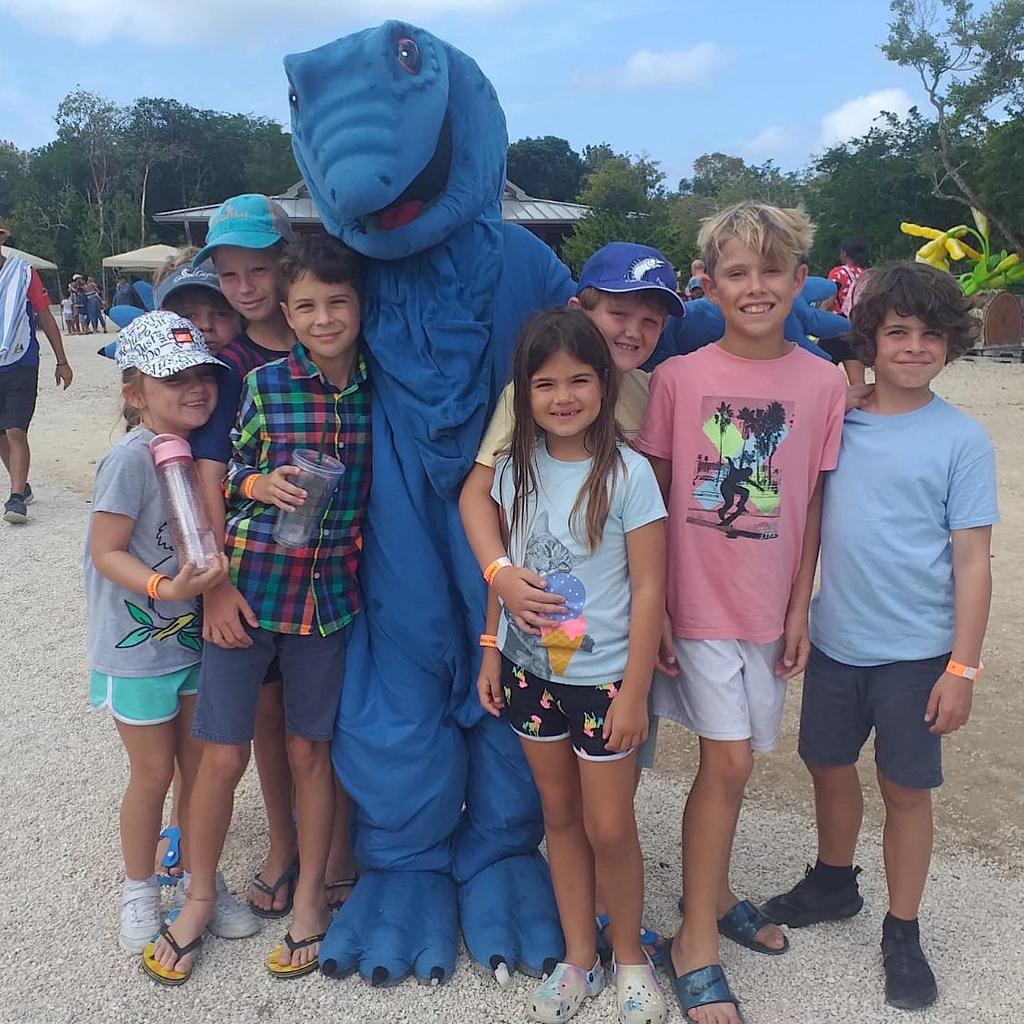
Community outreach with ‘Iggy’ the iguana. Picture credits: Blue Iguana Conservation
Empowering The Nation
Due to an increasing human population and expected rise in tourists post-Covid 19 restrictions, many of BIC’s native food plant collection sites are being lost due to new buildings and roads. To counteract this loss, BIC launched the Blue Iguana Gardens initiative, encouraging Grand Cayman’s green-fingered residents to grow food plant species to help feed blue iguanas at the breeding facility.
This is a great opportunity to educate, utilise and encourage the growth and protection of Cayman’s native flora. This initiative has been fantastically well-received by community members, including several schools, corporate businesses, farmers, and many private individuals.
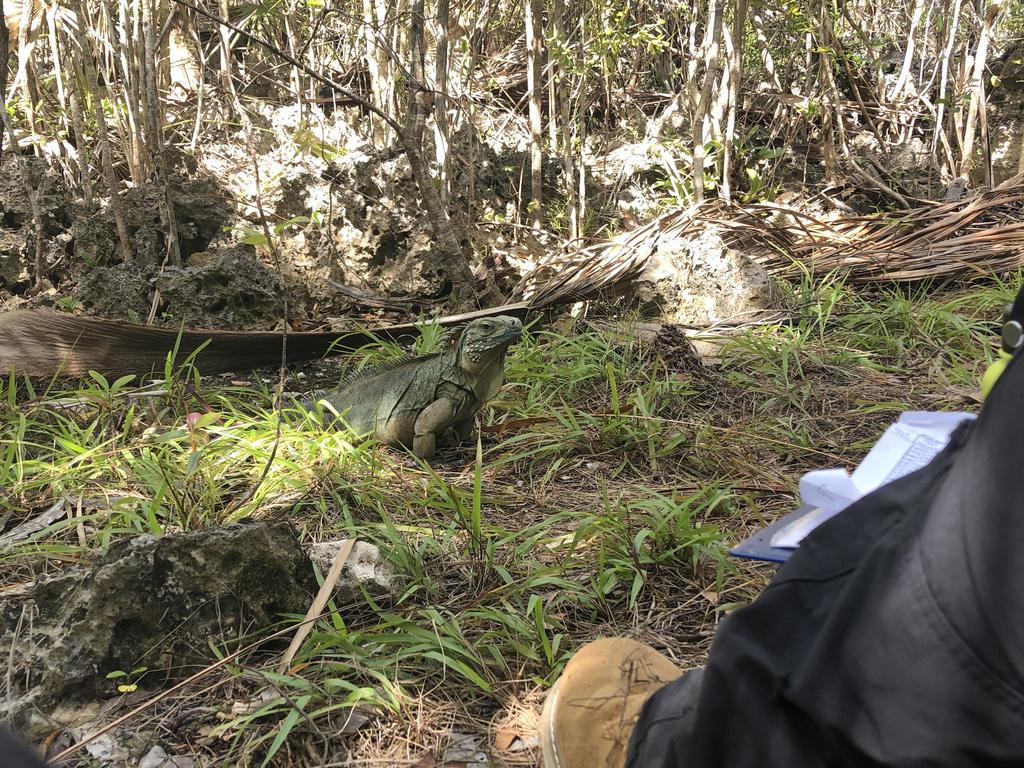
A wild blue iguana in Salina Reserve. Picture credits: Blue Iguana Conservation
BIC is bringing the project another step further to empowering the nation to benefit not only the blue iguanas, but also other native species, such as butterflies and birds. BIC also plans to use more community-based initiatives in 2021, to gain field data from outside the protected areas. This will be done through additional research methods and educational tools to continue creating positive links with private landowners.
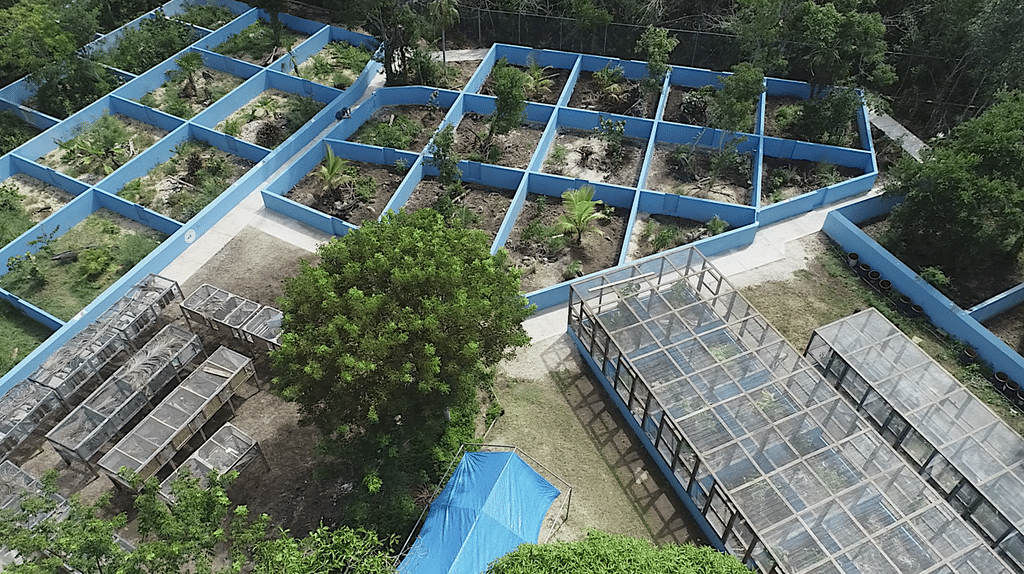
Aerial view of the Blue Iguana Conservation breeding facility. Picture credits: Blue Iguana Conservation
A Plan With An Ambitious Objective
Although there have been previous Strategic Species Action Plans for blue iguanas over the years, the anticipated 2021 – 2026 action plan, sponsored by Darwin Plus, will steer the future focus of the project. It will include reports on current blue iguana population knowledge, threats and identifies crucial data gaps to be fulfilled. Most significantly, this document also highlights an exciting and ambitious objective to create the first ever fully protected, invasive species-free ‘Habitat Island’ on Grand Cayman, which aims to boost tourism, home-grown conservation efforts and survivability for blue iguanas and other native species.
Partners And Governance
BIC Steering Committee: Is guided by a focused steering committee made up of key individuals, including veterinarians, biologists, and government representatives to assist the management of this iconic species.
Grand Cayman Project Partners: Cayman Islands Government (Department of Environment), St. Matthew’s University School of Veterinary Medicine, Queen Elizabeth II Botanic Park (Tourism Attraction Board).
International Project Partners: Wildlife Conservation Society (Bronx Zoo), San Diego Zoo Wildlife Alliance, International Reptile Conservation Foundation (IRCF), Mississippi State University, Harrisburg University, IUCN Iguana Specialist Group.

